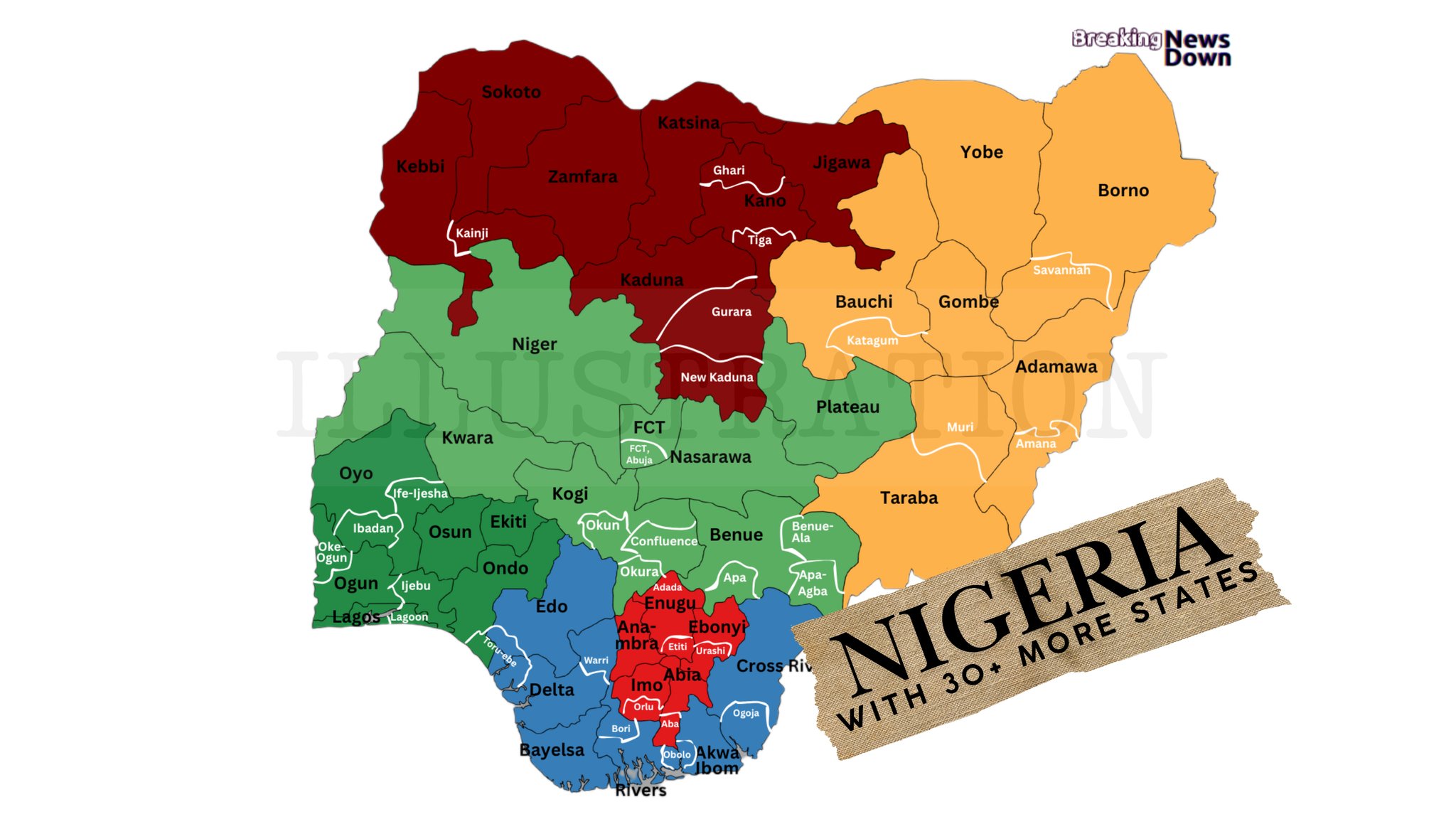By Evans Ufeli Esq
The recent proposal in Nigeria's House of Representatives to create 31 new states is a significant and complex issue that merits thorough scrutiny. As the nation grapples with persistent socio-political and economic challenges, the implications of such a drastic reconfiguration of its political landscape require critical evaluation.
While the prospect of additional states may seem appealing to those advocating for greater representation and autonomy, there are several key factors to consider regarding feasibility, political motivations, economic implications, cultural dynamics, and administrative challenges.
Nigeria has a rich history of state creation, with the number of states increasing from the original 12 at independence to the current 36 states. Each iteration aimed to address specific regional grievances, promote equity, and enhance local governance.
However, creating 31 additional states raises the question of whether there is an underlying rationale that echoes the justifications of past state creations.
Are we witnessing a genuine response to the aspirations of marginalized regions, or is there an element of political opportunism at play? The historical context behind Nigeria’s federal structure is essential to understanding the motivations behind this proposal.
The political landscape in Nigeria is characterized by deep-seated ethnic and regional divides. The proposal for new states can potentially be interpreted as a strategy to manipulate political power dynamics.
Indeed, the creation of new states could lead to a rebalancing of representation in the National Assembly, favoring certain regions over others. This could destabilize existing political alliances and exacerbate tensions among Nigeria's diverse ethnic groups. While increased representation is essential, it requires careful consideration of how it may intensify political competition rather than alleviate it.
Establishing 31 new states will undoubtedly have significant economic implications for Nigeria. Each new state would demand its government infrastructure, resources for public administration, law enforcement, education, healthcare, and transportation.
This reallocation of resources could strain Nigeria’s already stretched federal and state budgets, particularly in a nation grappling with economic challenges such as infrastructural deficits, poverty, and unemployment. It is paramount to examine whether these proposed states can sustain themselves economically or if they will become further dependent on federal allocations, straining an already precarious fiscal situation.
Nigeria is one of the most ethnically diverse nations in the world, and its states often reflect this complexity. The proposal to create 31 new states may exacerbate ethnic and regional tensions rather than promote unity and cooperation.
A significant risk exists in the potential for further fragmentation along ethnic lines, as groups may seek to establish dominance in new states based on the prevailing ethnic balances. This could impact inter-state relations and national cohesion, leading to further polarization rather than the desired outcome of inclusive governance.
The administrative burden of creating 31 new states cannot be understated. It requires comprehensive planning, legal frameworks, and the establishment of new governance structures. Such a rapid and expansive change could overwhelm Nigeria's bureaucratic and administrative capabilities, leading to inefficiencies and confusion in governance.
Additionally, there would be the challenge of integrating new states into existing national frameworks, including law, human resources, and public services, which requires careful and meticulous execution.
The voices of the Nigerian populace should be at the center of this conversation. Any proposal that lacks public engagement and support risks being perceived as a top-down approach disconnected from grassroots realities.
A thorough dialogue involving citizens, civil society organizations, and local leaders is essential to understanding the genuine needs and desires of various regions. Only through holistic and inclusive engagement can a proposal for new states be justified and celebrated as a step towards true representation and governance.
Instead of creating new states, alternative solutions to address representational and governance challenges should be explored. This might include strengthening local government autonomy, enhancing fiscal decentralization, and promoting equitable resource distribution. Such alternatives could foster a more cohesive national identity while addressing the structural inequities that various regions face without the drastic upheaval of state creation.
The proposal to create 31 new states in Nigeria presents both opportunities and formidable challenges. While the intention might be to address issues of representation and local autonomy, a thorough examination reveals significant risks and potential drawbacks that cannot be overlooked. The historical context, political motivations, economic implications, cultural dynamics, administrative challenges, and the need for genuine public engagement all play crucial roles in determining the viability of such a radical proposal.
As Nigeria stands at a crossroads, it is essential for lawmakers and stakeholders to consider whether creating new states is the most effective and sustainable path forward. In a nation rich in diversity and potential, the focus should remain on fostering unity, collaboration, and equitable governance, ensuring that all voices are heard and represented in the collective political discourse. Only through careful and deliberate discourse can Nigeria navigate its complexities and emerge stronger, united, and more resilient.




